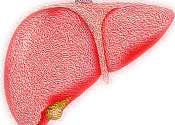Hepatitis B: 'Sleep timer' for immune cells discovered
In chronic hepatitis B, the liver contains immune cells that could destroy hepatitis B virus infected cells but are inactive. A team from the Technical University of Munich (TUM) has discovered that cells in blood vessels ...
19 hours ago
0
1









